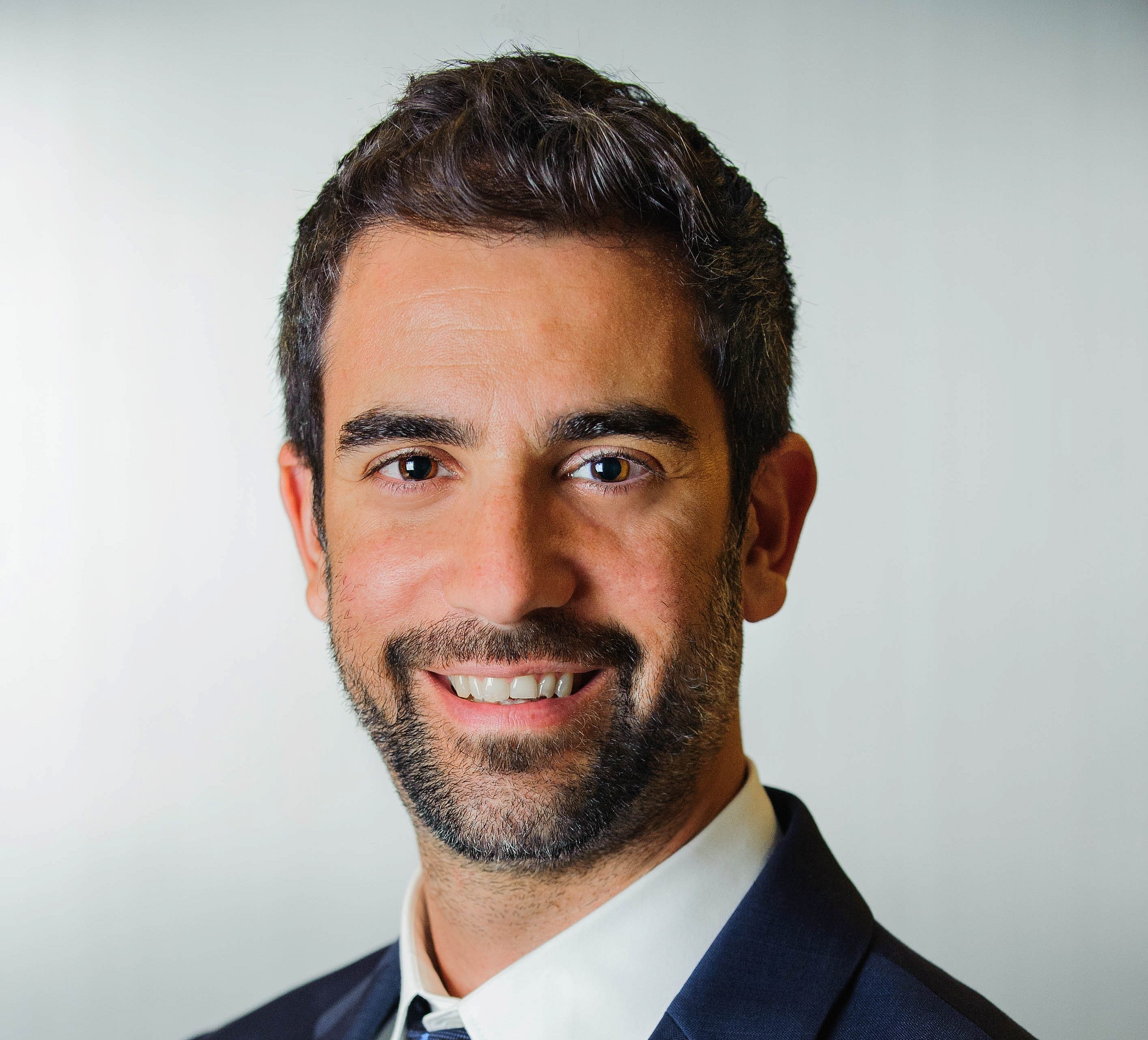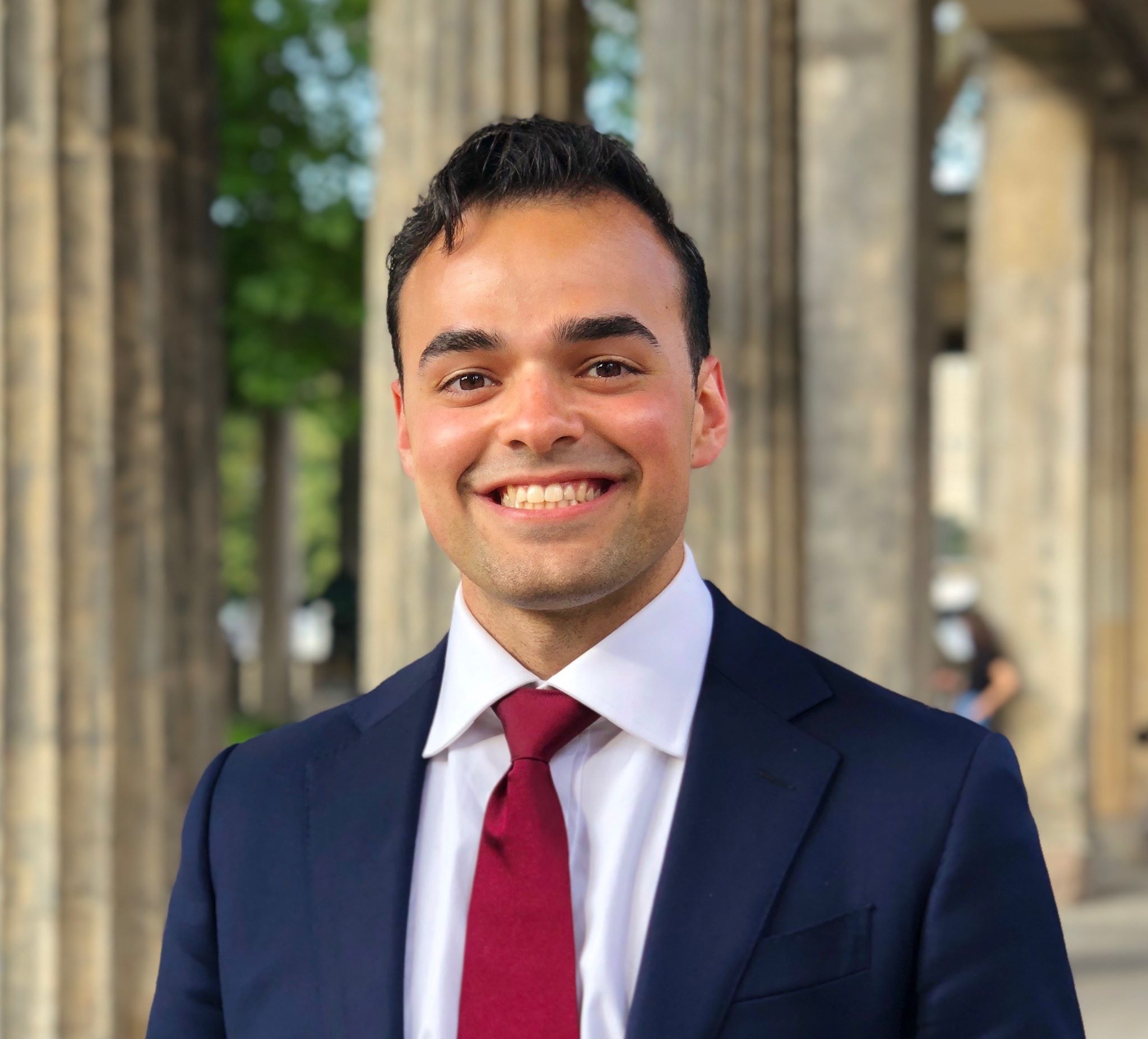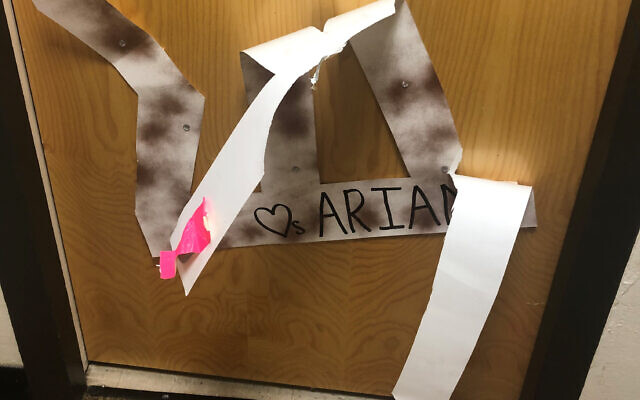Anti-Semitic Incidents at UGA Prompt Response – Update
Several recent anti-Semitic events at UGA have upset students and staff alike, and prompted responses from administrators.
Update: The University of Georgia has determined that a Clemson University student visiting Athens drew swastikas on Russell Hall on Nov. 9. UGA has banned that student from all of its campuses, though he will not face criminal charges, according to the Atlanta Journal Constitution.
A series of anti-Semitic events at the University of Georgia have prompted responses from students, faculty and administrators, both Jewish and non-Jewish.
The first incident took place around a month into the school year. First-year student Ariana Dinberg returned to her room in the freshman dorm, Creswell Hall, to find a sign on her door ripped and fallen. The sign was from the Jewish sorority, Sigma Delta Tau, to which Dinberg belongs.
“I’d wasn’t sure if it had just fallen and ripped in the process,” Dinberg said, but she reported the event to her resident assistant.
A second incident happened months later, in October. Dinberg and her roommate had a white board posted outside their room. The words “All Heil” were written on the board alongside a swastika.
She reported the incident to the Equal Opportunity Office and the university police department, but as of Oct. 15, Dinberg said the University could not identify the culprit. According to the police report, there was no obvious connection between the two events.
“There were no cameras in the hallway for privacy reasons,” she said. “But the dean of students reached out to me and invited me to get coffee to discuss it more and learn a little more.”
Another similar incident happened Nov. 9 in Russell Hall, another freshman dorm. According to university police reports, a student returned to their hall and found swastikas drawn on laminated nametags in dry-erase marker.
The victim also said that other doors on her hall were similarly marked, according to UGA’s Grady Newsource, but because the markings were erased, the police were unable to confirm them, and as such a criminal trespass investigation was not warranted.
“It wasn’t anybody Jewish who was specifically targeted. It happened to everybody in the hall,” Dinberg said. “I don’t believe that they would have been the same person doing it, which is obviously worse, but I don’t feel unsafe or anything like that.”

UGA Hillel Director Roey Shoshan said that he has been in ongoing discussions with the administration about these events and what the next steps might be, including more cameras in dorms.
“Obviously there are privacy issues and as a public school the law is very clear on what can be done,” he said. “It does create frustration and sometimes fear and uncertainty. … But we are trying on our end to give our students all the tools they need to handle these situations.”
In response to the events, UGA President Jere W. Morehead sent an email to the student body.
“I am appalled by such offensive and outrageous displays of hate. Let me be clear: this type of behavior has no place on our campus. The University of Georgia is defined by our shared values, … these values unite us as a campus community and inspire our academic endeavors,” the statement read, in part.

Max Harris, a student and member of UGA’s Young Democrats, said that he thought the letter was a positive step.
“From my perspective, the administration has been very open to meeting with students who were affected, and very welcoming when it comes to engaging community members,” Harris said. He added that, in light of the UGA statement, “I commend the university for taking such a public and strong stance against hate.”
Ellie Reingold, a sophomore and board member at UGA’s Hillel, was less complimentary of the statement.
“At no point in the email were the words anti-Semitism, Nazi, white supremacy,” she said. “It did not condemn it as strongly as I would’ve liked, and it whitewashed it as general hate speech. The word anti-Semitism should’ve been used because that’s what it was.”

David Williams is associate provost and director of the UGA honors program. He is also a graduate of Hebrew Union College in Cincinnati and has been with UGA’s Department of Religion for close to 30 years.
“It affects me very deeply because I don’t want my community to be one where these kinds of things happen, but unfortunately they are happening,” he said. “I don’t have a great answer, but I feel for the students first and foremost.”
A third, unrelated incident also took place Nov. 11 that upset many students. The anti-abortion group, The Center for Bio-Ethical Reform put up signs at UGA that displayed graphic images of aborted fetuses alongside images of lynchings and Holocaust photography, including photos of victims’ bodies.
Reingold penned an op-ed for the student newspaper The Red & Black in response.
“The images were incredibly graphic and probably triggering to a lot of people,” she told the AJT. “Students have to walk past that to get to class, with no warning. … I didn’t see a lot of coverage about the genocide issue, which I thought was at least as bad as the imagery.”
Reingold said she has felt that Jewish students’ needs are not always considered when making decisions, pointing to three consecutive career fairs that took place on Yom Kippur, and these signs likening those who perform abortion to Nazis.




comments